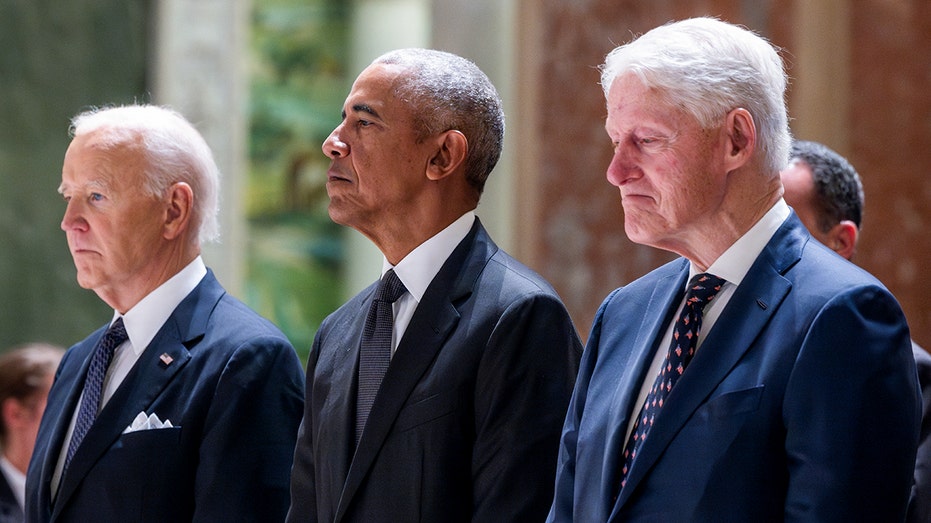In a heartfelt response to President Joe Biden’s recent health diagnosis, former President Barack Obama has rallied in support of his long-time friend and political ally, emphasizing Biden’s profound contributions to the fight against cancer. The statement, which garnered attention across various media platforms, underscores Obama’s respect for Biden’s extensive efforts that have made a significant impact on cancer research and treatment.
During a recent event, Obama shared his thoughts about Biden’s health following news that the current president had received a diagnosis related to his ongoing health conditions. Obama highlighted the pivotal role Biden has played in advancing cancer research over the years, reinforcing the notion that his presidency has been marked by critical breakthroughs in treatment options for patients suffering from this disease.
“Nobody has done more to find breakthrough treatments for cancer than Joe,” Obama stated passionately. “His commitment to public health and finding efficient solutions for diseases has been unparalleled throughout his career.”
This declaration comes in light of the Biden administration’s concerted efforts to tackle health issues, particularly cancer, a health concern that has affected millions of Americans and their families. Biden has advocated for increased funding for the National Institutes of Health (NIH) and has been a strong supporter of the Cancer Moonshot initiative, which he originally launched during his tenure as vice president under Obama.
The Cancer Moonshot initiative aims to accelerate cancer research and make more therapies available to patients while also improving cancer prevention and detection. Biden’s personal connection to cancer—as he lost his son, Beau, to the disease—has fueled his dedication to this cause and added a layer of urgency and empathy to his efforts.
Obama’s remarks serve as a reminder of the broader implications of Biden’s health diagnosis, echoing feelings of compassion among supporters and encouraging them to focus on Biden’s legacy and accomplishments in the healthcare sector. The former president’s endorsement of Biden’s mission highlights the importance of the fight against cancer not only as a political endeavor but as a deeply personal one for Biden.
As public discourse shifts towards Biden’s health, many are considering the potential impact on his ability to lead the nation and continue pushing forward his administration’s policy agenda, particularly in healthcare. The attention brought on by Biden’s diagnosis invites questions about continuity in leadership and the White House’s ongoing commitment to innovative cancer research and development.
Both Biden and Obama have often projected an optimistic narrative about American resilience in the face of adversity, and this situation is no different. The outpour of support from the former president reflects a united front in the face of challenges. Interestingly, prior to becoming the president, Biden dedicated a considerable part of his career to supporting health policies and advancing medical research, indicating how his experiences have shaped his policies and perspectives today.
Reaction from the public and political figures has been overwhelmingly supportive, with many recalling Biden’s personal story and the lengths he has gone to advocate for health initiatives. Biden’s administration has also established various partnerships with pharmaceutical corporations and research institutions to enhance cancer treatment options, a move pivotal to changing the landscape of cancer care in America.
In particular, those in the cancer research community have expressed their appreciation for Biden’s willingness to prioritize cancer as a leading health issue throughout his presidency. They view his connection to the cause, along with his genuine empathy for those affected by the disease, as a compelling asset in drawing attention to the need for further advancements in cancer treatments.
Aside from his legislative initiatives, Biden has also been a vocal advocate for involving patients and family members in the development of treatment options, recognizing that the voices of those directly affected are crucial to tailoring policies that will effectively benefit the community. This inclusive approach signifies a shift towards creating more patient-centered healthcare by designing systems and policies that are attentive to the needs expressed by those most impacted.
Moreover, critics of the current administration have pointed out that any health-related setbacks could pose risks to the political stability and direction of his administration as they engage in critical discussions with Congress on various healthcare reforms. Nevertheless, advocates for Biden argue that his extensive experience and unwavering spirit will enable him to persevere and lead effectively, even amid personal health challenges.
As the nation continues to navigate the complexities surrounding public health, President Biden’s commitment to provide hope and continuous support for cancer patients remains a defining characteristic of his administration. With the backing of influential figures like Barack Obama, this vision is likely to resonate strongly within the American public and motivate continued engagement in healthcare discussions.
Looking ahead, both Biden and Obama’s advocacy could act as a catalyst for renewed momentum in cancer research, potentially mobilizing further resources towards groundbreaking studies and expanding access to innovative therapies. This moment sheds light not only on Biden’s current health challenges but also on the legacy and future of cancer care in America, which is intrinsically linked to the leadership of the president.
Ultimately, Obama’s support and Biden’s resolve signify a steadfast commitment to driving progress in the realm of health, particularly in the face of adversity. As the political landscape evolves, the impact of their combined efforts in combatting cancer will be felt across the broadly defined boundaries of healthcare, establishing a legacy of hope and resilience that underscores their continued fight for a healthier future for everyone.































